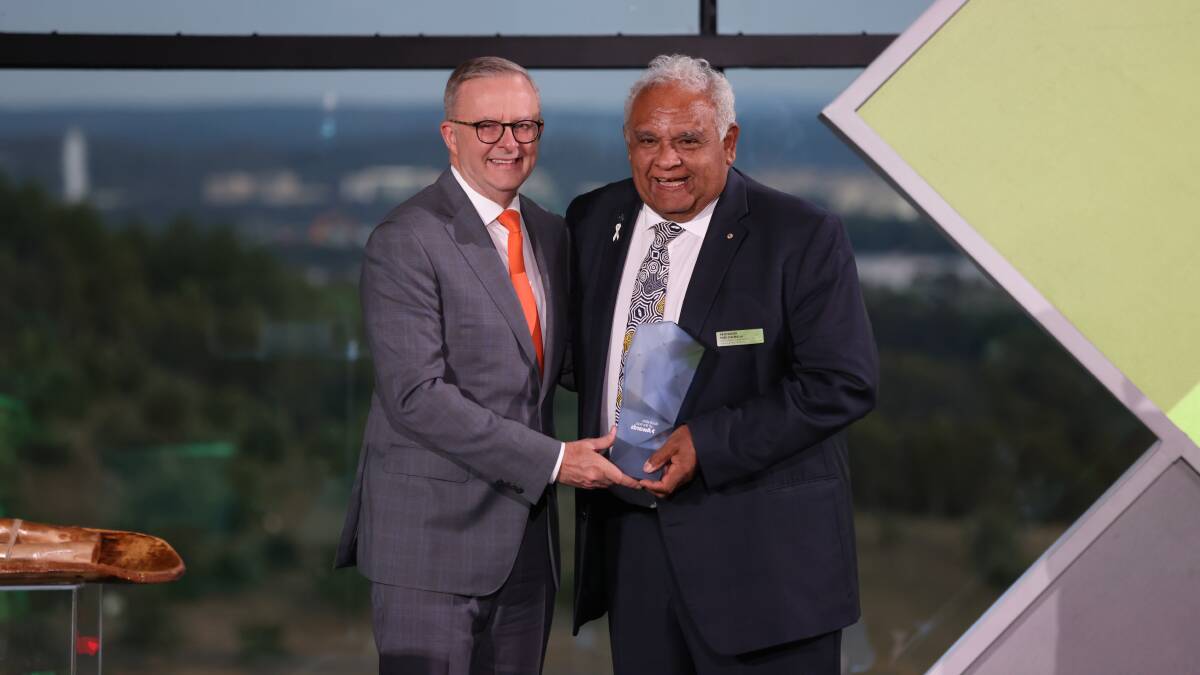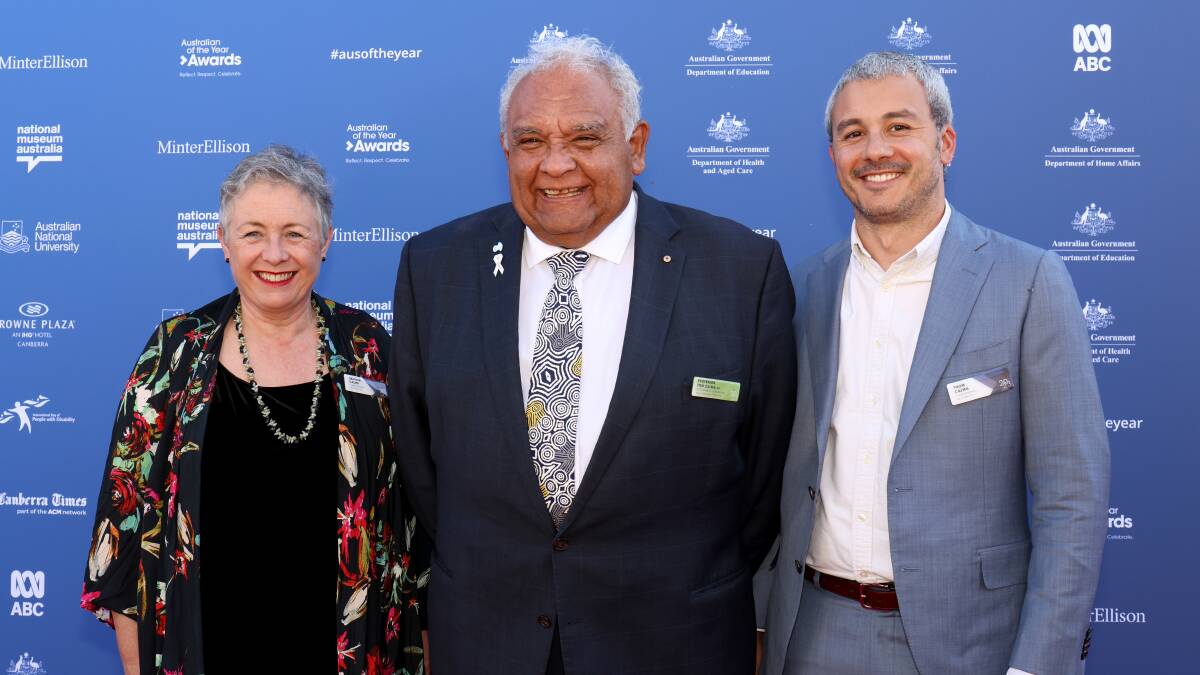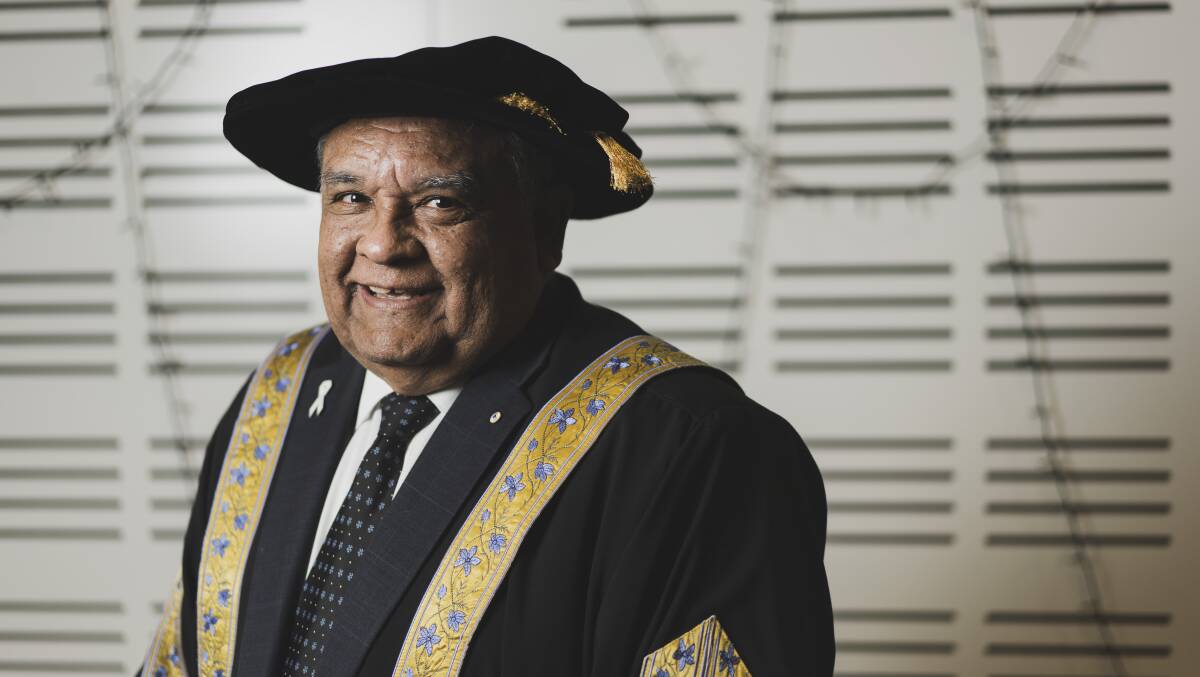"Australian's have only ever known a system of consistent policy failure and poor outcomes for First Nations people," Professor Tom Calma said when accepting an award for Senior Australian of the Year.
Subscribe now for unlimited access.
$0/
(min cost $0)
or signup to continue reading
"Policies are too often made for First Nations people, rather than with us."
Professor Calma's life and career have been distinguished in anybody's book.
He was a diplomat in India and Vietnam between 1995 and 2002 and is now the chancellor of the University of Canberra and a professor at the University of Sydney.

Professor Calma was Race Discrimination Commissioner from 2004 to 2009 and Aboriginal and Torres Strait Islander Social Justice Commissioner from 2004 to 2010. He has advised ministers and campaigned for human rights.
If the Voice to Parliament happens, he will be seen as an architect.
He said a Voice would mean "our fate will no longer be determined by the whims of politics and ever changing governments."
"Surely it is obvious, permanent change that is not part politically driven is needed."
His 2005 Social Justice Report "regarding the enjoyment and exercise of human rights by Aboriginal persons and Torres Strait Islanders" is viewed as a landmark in its analysis of, among other aspects, the gap between the life expectancy of Indigenous and non-Indigenous Australians.
The citation for his award as Senior Australian of the Year said: "Respected for his inspirational and inclusive advocacy for human rights and social justice, Dr Tom Calma has dedicated his life to improving the lives of all Australians and particularly Aboriginal and Torres Strait Islander Australians.

"For the past four decades he has championed the importance of empowerment - a passion that runs through his work in education, training, employment, health, justice reinvestment and development."
He remains right at the centre of the life of the country.
He was co-author of the 272-page report which set out how a Voice to Parliament might work.
It was presented to Scott Morrison's government in 2021.
He combines rigorous analysis with active campaigning. He advocates eloquently, writing for journalistic organisations as diverse as CNN in the US and The Australian.

Earlier this month, in an interview with The Canberra Times, he criticised Liberals who wanted more detail on how the Voice to Parliament would work.
Their demands for more detail were "mischievous" and "illogical", he said. He questioned what sort of "malice" was motivating their stance.
It was "very premature" for politicians to be insisting on a detailed model for the Voice before a referendum to enshrine it in the constitution had been held.
He said the time for debate on the specifics would be after a successful referendum.
Professor Calma also addressed senior Australians, saying they were most likely to be targeted by misinformation.
READ MORE:
In his speech at the Australian of the Year Awards, Prime Minister Anthony Albanese campaigned for his government's proposed Voice to Parliament.
"Later this year, in a referendum, every Australian will have the opportunity to take up the generous and gracious invitation to recognise Aboriginal and Torres Strait Islander Peoples in our nations' birth certificate - our Constitution - and to support a voice to Parliament," he said.
"I believe - just like tonight - it will be an uplifting moment of national unity.
Every Australian can be proud that the society we have built together, down the generations, includes the world's oldest continuous culture."
Professor Calma was born in 1953 in the Darwin region. According to the National Indigenous Australians Agency, he is of Kungarakan and Iwaidja heritage.
He is the second Senior Australian of the Year in a row to be from the ACT.
The 2022 winner, Val Dempsey, was also from the territory.


